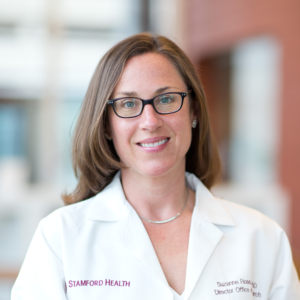It wasn’t just the resignation of yet another clinical research coordinator (CRC) that Christina Brennan, MD, CCRC, vice president for clinical research at Northwell Health, had to contend with earlier this year. “The employee gave me only a few days’ notice because she would lose her time-sensitive bonus from the sponsor that recruited her” if she waited too long to start for them, Brennan recalls. “It’s part of a total talent drain.”
Welcome to the war for clinical trial talent, 2022 style.
While there have been workforce shortages and other disruptions in the past, many thought leaders and those toiling in the trenches agree there’s never been such a perfect storm of rising demand for clinical trials tasking an overwhelmed, scattered, and sometimes questionably qualified workforce—all while contending with unprecedented levels of upheaval in the basic way clinical trials are conducted.
It’s not helping that there’s also a talent shortage in many industries that directly support or are otherwise adjacent to the conduct of clinical trials.
“We have approximately 2.5 million fewer people in the labor force than we were on track to have with pre-pandemic trends,” Wendy Edelberg, director of the Hamilton Project at the Brookings Institution recently told The Washington Post. “That’s a big number, and it means that people who are still there, who are still working these jobs, are having to do even more.”
In another harmful trend, more than one-third (34%) of nurses say it’s very likely that they will leave their roles by the end of 2022 and 44% cited burnout and a high-stress environment as the reason for their desire to leave, according to a new survey by Incredible Health, a nursing hiring platform, as reported by FierceHealth. Nurses, who may be part of clinical trial teams performing key administrative and patient-facing functions as clinical research coordinators (CRCs), cited benefits and pay as the second leading reason (27%) for quitting their jobs.
This comes as experts say the pipeline of new doctors and nurses alike is insufficient to meet the growing demands of 2022 and beyond. The company analyzed data from more than 400,000 Incredible Health nurse profiles and surveyed more than 2,500 registered nurses in the U.S. in February 2022.
Drilling down into the overall CRC industry reveals more bleak numbers. For example, a recent survey by CareerBuilder found there currently are an estimated 33,631 to 56,700 CRCs in the United States, and the CRC job market is expected to grow by 9.9% between 2016 and 2026. That figure doesn’t include other roles integral to the clinical research profession, such as study monitors, data managers, and regulatory compliance specialists.
“We’re seeing poaching from [pharmaceutical firms] and from site to site, we’ve got the great resignation in play, and COVID-19 has made everyone rethink their work/life balance,” says Erika Stevens, MA, FACRP, principal consultant at Recherche Transformation Rapidle and past president of ACRP’s Association Board of Trustees.
It’s an era of “shameless poaching,” says Suzanne Rose, MS, PhD, CCRC, FACRP, executive director of research at Stamford Hospital, where recruiters or others will approach and attempt to lure her CRCs away half a dozen times with various offers. “Retaining staff is very tough as the landscape has changed,” Rose says. “We’re all going after a group” that appears to be shrinking in size, she adds.
“There are no [worthy] candidates,” worries Joy Frestedt, PhD, RAC, FRAPS, CPI, FACRP, president and CEO of Frestedt Inc. “There is no one out there” to fill CRC and other positions that sometimes lay dormant for months, if not longer, she says. She agrees COVID-19 has helped usher in a new attitude from many in the workforce, too. “Many here in the United States now want to be more European and work less,” with a greater emphasis on the “life” portion of the work/life equation, she notes.
“CRCs are being offered twice the salary, and I can’t blame them for seizing the opportunities,” Brennan says.
“We’ve never seen such a difficult recruiting period,” says Suzanne Kincaid, CCRA, ACRP-PM, FACRP, the COO at Aperio Clinical Outcomes. “It’s so difficult to compete with bigger CROs and Big Pharma,” she adds. In addition, “a lot of CRCs don’t want to travel” after COVID-19, she notes.
Further, Kincaid has encountered another odd challenge making it even more challenging to find talent: The rise of zombie candidates. “We’re hearing more about fake candidates with fake credentials, who are literally being coached through an earpiece during a Zoom job interview,” Kincaid says.
During the interview, these zombie candidates are “very scripted, with studied responses,” Kincaid says. “You can sense something is off.”
So-called zombies aside, the challenges remain with real, live human candidates—or the lack thereof.
“Something has got to change,” Brennan says.
Author: Michael Causey



